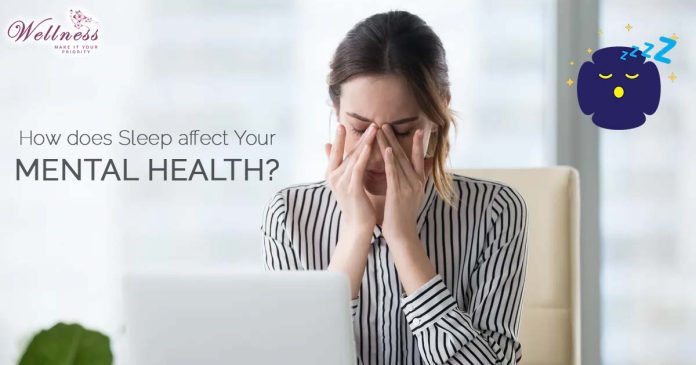Many of us know the answer to how does sleep affect your mental health or why it is important to get enough sleep. There is a reason for saying “woke up on the wrong side of the bed” when someone shows up in a bad mood.
Our bodies require adequate sleep to recover from the long day and to allow ourselves a healing process. However, many of us struggle for a good night’s sleep which results in feeling unfocused and grumpy. If the condition prevails, it can decline your overall health and wellness. Mental health is closely related to your sleep pattern, therefore sleep deprivation can impact your mental health. Similarly, if you are going through a mental health condition it can affect your sleeping ability.
Let’s dive deep into the topic – to get clearer about how does sleep affect your mental health.
Table of Contents
How Mental Health is Related to Sleep? – Relationship Between Your Sleeping Pattern and Mental Wellness
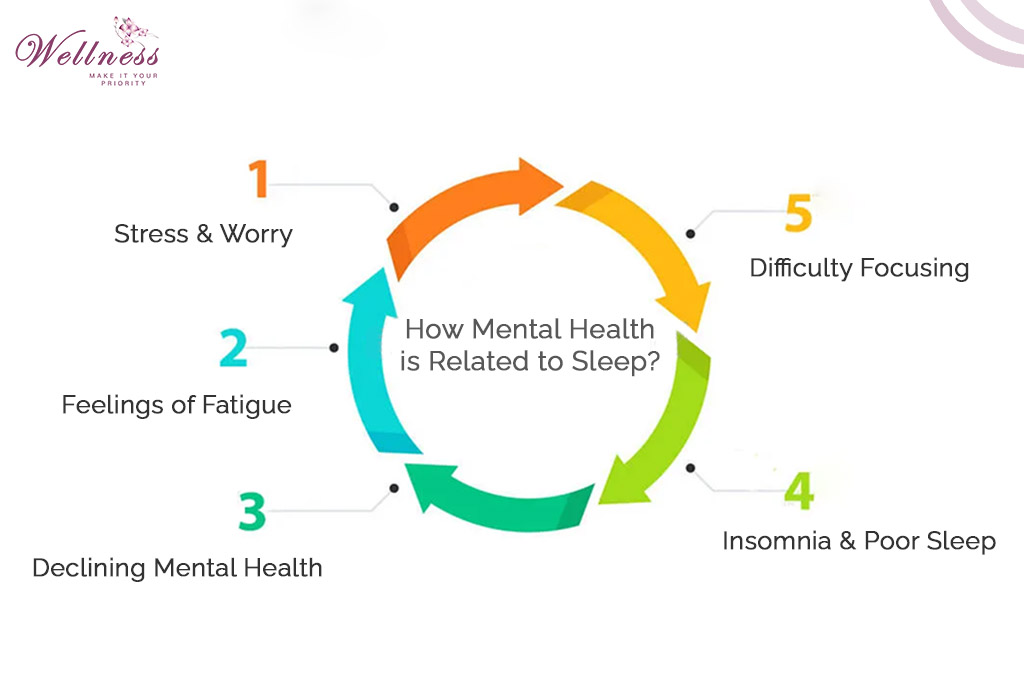
Did you know that our brain activity constantly fluctuates during different stages of sleep? The working of our brain decreases and increases throughout our sleep cycle. Each stage of this cycle plays a crucial role in forming a healthy or unhealthy mind. It allows activity in various parts of the brain to ramp down or up which enables better learning, thinking, and memory. A study proved that brain activity during our sleep has prominent impacts on physical and mental health.
By having sufficient sleep, a person facilitates the processing of his brain’s emotional information. The lack of sleep or sleep deprivation is especially harmful to our positive emotional content and its consolidation. The reason is – that our brain works to remember and evaluate memories and thoughts during the sleeping process. Less sleep can affect emotional reactivity and mood and can also result in various mental health disorders. In fact, under severe circumstances, a person gets to a stage where he starts generating ideas for suicide.
The traditional concept of sleep (lack of sleep is a symptom of mental health issues) is gaining popularity. Everyone is getting more curious about questions like how does sleep affect your mental health. It is becoming clear that mental health is related to sleep and they share a bidirectional relationship.
Sleeping problems can be both a consequence or a cause of certain mental health conditions.
Insomnia
Sleep deprivation including insomnia can act as an initiator that can also worsen your mental health problems. Insomnia is a very common issue around the world. According to a research calculation, around 33% world’s population is affected by it. People with chronic insomnia are more likely to develop sleeping problems.
OSA (Obstructive Sleep Apnea)
This is another sleep aspect that is commonly linked with mental health. The disorder involves breathing poses during sleep and creating disturbed and fragmented sleep by reducing the oxygen levels of the body. People with psychiatric conditions are more likely to interact with obstructive sleep apnea.
How does sleep affect your mental health? – Effects of Sleep Deprivation
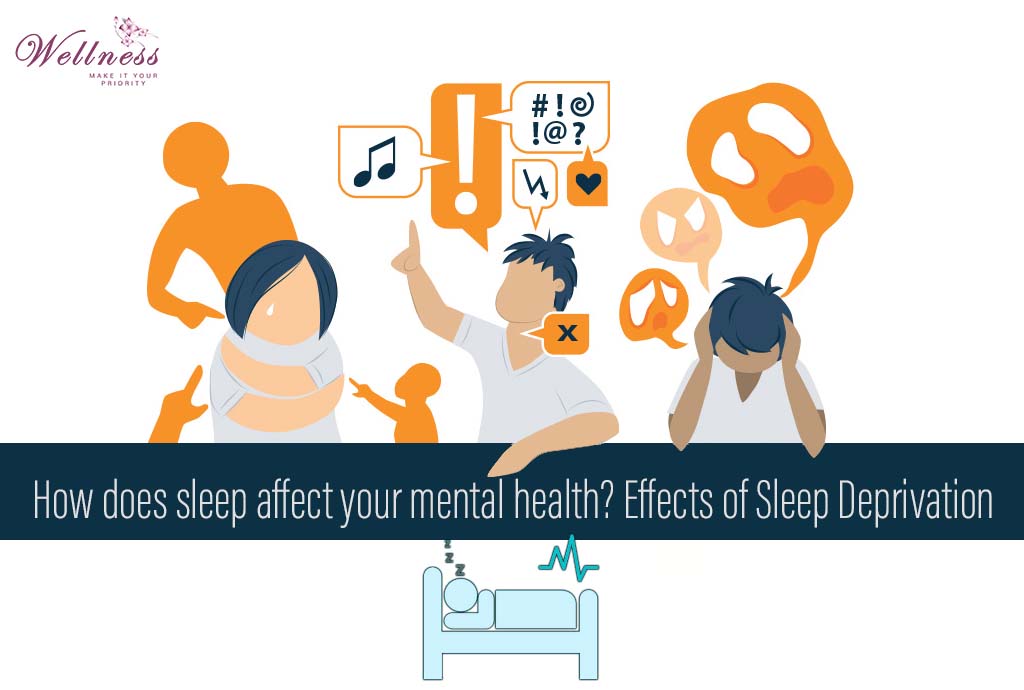
Sleep undoubtedly plays a crucial role in sustaining physical health and wellness. Lack of sleep can cause a large number of adverse health consequences such as type 2 diabetes and heart conditions. But have you thought about how does sleep affect your mental health? A few psychiatric conditions can cause sleep disturbances and sleep problems like anxiety and bipolar disorder.
According to various research, the relationship between mental health and sleep is quite complex. Modern studies suggest that:
Lack of sleep can be a result of various psychiatric conditions – similarly, it can also be a cause of maintaining and developing numerous health conditions.
In simple words, sleep deprivation can lead to a drastic change in your mental health or it can be a result of a certain mental health problem. Lack of sleep can trigger numerous psychological conditions – however, the underlying reasons for these problems are still under debate. Because of this complex relationship between mental health and sleep – it is crucial to consult your doctor if your sleep deprivation gets severity.
Sleep Deprivation Can Cause Mood Changes
When you do not get enough sleep, it can lead to mood changes such as increased irritability. A study was performed a few years back and many of its participants experienced feelings of depression and anxiety due to sleep deprivation. The lack of sleep can increase the levels of anger, depressed thoughts, and aggregation. The reason is that when people are deprived their sleep, the brain does not work properly. Consequently, it becomes unable to suppress amygdala reactivity which is the emotional center of the brain. We are less likely to feel in control of our behavior and emotions and more likely to feel exhausted and irritable – when we lack good hours of sleep.
Lack of Sleep Leads to Behavior Changes
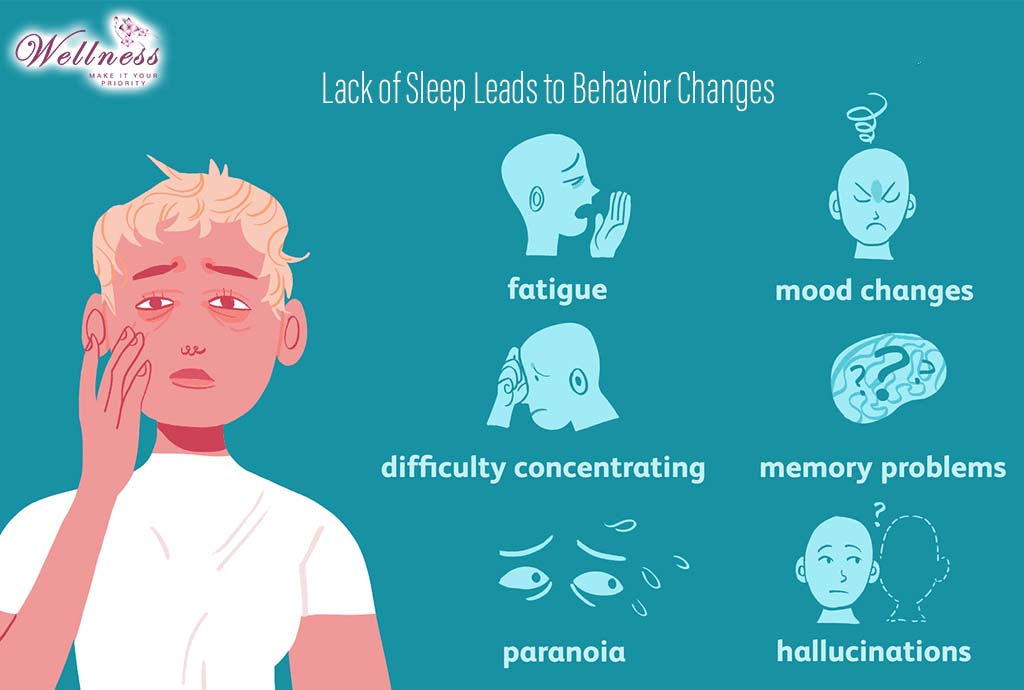
Other than mood changes sleep deprivation can also lead to unusual behaviors. For instance, emotional outbursts, hyperactivity, or increased impulsivity. Have you ever noticed, that we feel less likely to communicate effectively when we are having lack sleep? This can be a perfect answer to a question arising in your mind about how does sleep affect your mental health.
Some people act erratically and some even start yelling at others when they do not get to catch enough sleep. Sleep refreshes your mind and makes you ready for the next day and when you stop prioritizing it – it silently starts declining your overall health.
Sleep Quality Affects Your Stress Levels
Having a poor sleep pattern can make it more difficult to overcome even a minor stress level. Daily hassles become a constant frustration for people with stress. You may find yourself drained by everyday circumstances. Moreover, thinking about how poor your sleep pattern is can even feel like a big stress. You know your body and mind demand a good sleep but your schedule is not going to allow you. This thought can even keep you up while you try to sleep.
Poor Sleep Can Cause Brain Fog
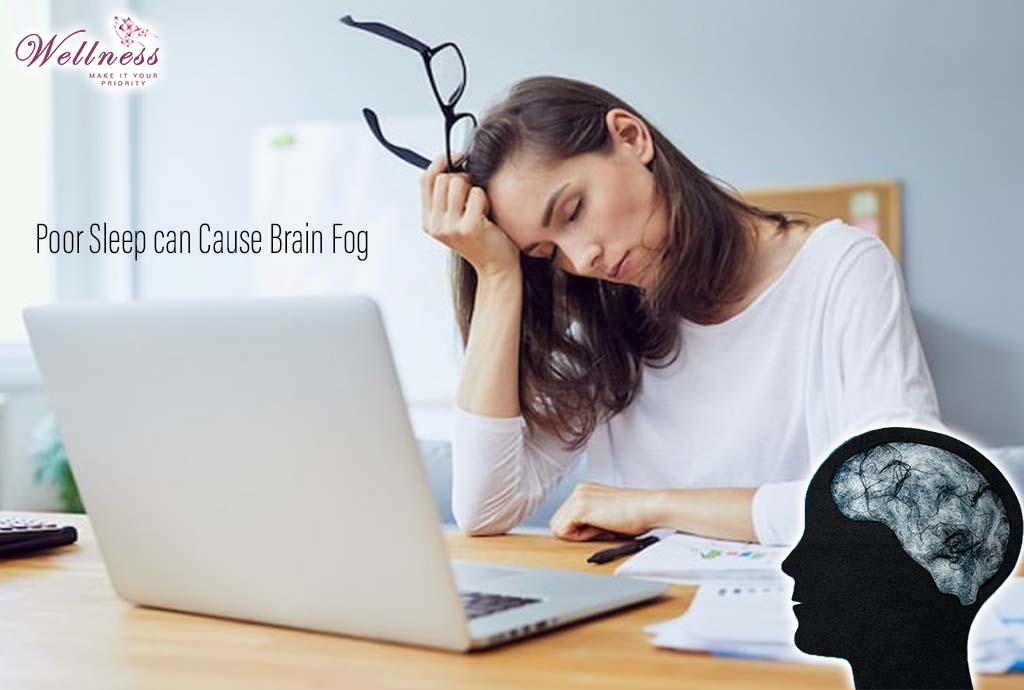
Our brain requires regular good hours of sleep to operate at its full capacity. When we cannot get proper sleep, it results in brain fog causing troubled concentration or confusion. You might find it difficult to recall numerous memories or the right words to express yourself properly. Sometimes it becomes difficult to be productive at full capacity when your brain does not get enough sleep to refresh.
Sleep and Mental Health Conditions
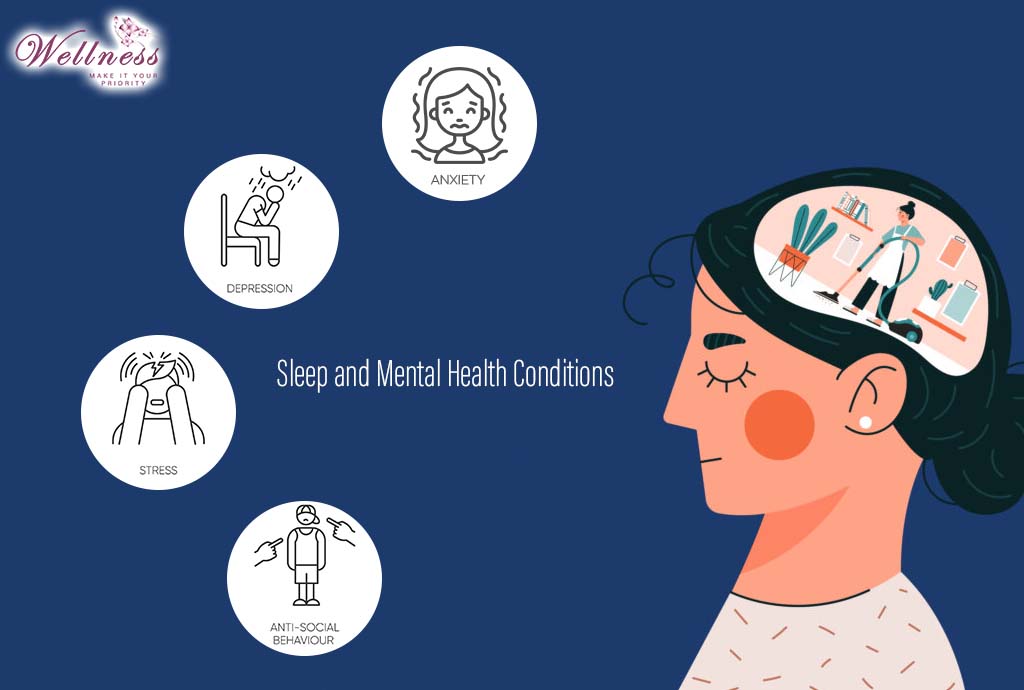
Mental health and sleep both terms are both intertwined. When you face sleep deprivation it directly affects your mental state. The statement becomes more apparent by reviewing the question of how does sleep affect your mental health conditions.
Attention-deficit/hyperactivity disorder (ADHD)
It is a neurodevelopmental disorder that includes increased impulsiveness and reduced attention span. Attention deficit/hyperactivity disorder is more common in children. However, in some cases, the disorder lasts into adulthood and even can diagnosed in individuals who are already adults. People going through ADHD commonly have sleeping issues.
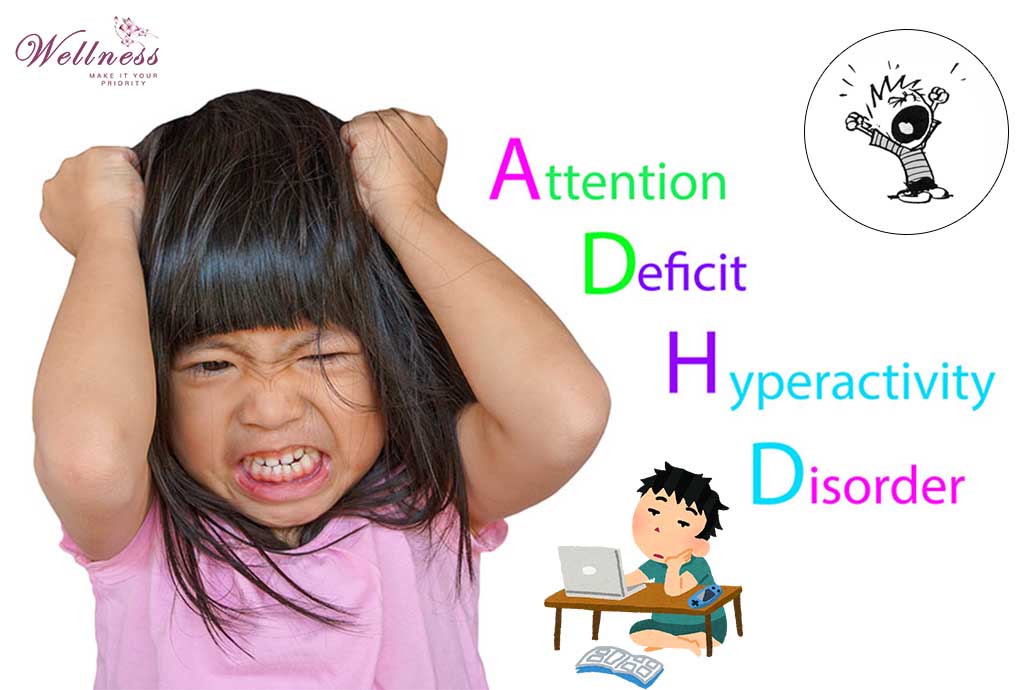
They might develop:
- Difficulty in frequent awakenings
- Excessive daytime sleepiness
- Difficulty falling asleep
- RLS (restless leg syndrome)
- Obstructive sleep apnea
Depression
More than 300 million people around the globe have depression – a common type of mood disorder. Around 75 percent of people with depression show the signs and symptoms of insomnia. Some people also suffer from hypersomnia and excessive daytime sleepiness.
Sleeping problems previously were seen as an outcome of depression. However, growing evidence indicates that sleep deprivation may exacerbate or induce depression. Sleeping problems and depression share a bidirectional relationship and their symptoms are reinforced mutually. Poor sleep can worsen depression and constant depression can lead to lack of sleep.
Seasonal Affective Disorder
It is one of the common subtypes of depression. Seasonal affective disorder often occurs during the times of the year when there are reduced daylight hours. People living in northern areas are more at risk of experiencing this disorder in the winter and fall seasons.
Post-Traumatic Stress Disorder (PTSD)
Sleeping issues are more persistent in people going through post-traumatic stress disorder. The reason is that sleep deprivation can not only develop the disorder but also can keep it going for a long time. If someone interacts with PTSD it becomes difficult for them to fall asleep as well as to remain asleep for long hours. Similarly, if a person is already going through post-traumatic disorder, the condition can affect their regular sleeping pattern.
Anxiety Disorders
The relationship between anxiety and sleep can appear in both directions – similar to numerous other psychological conditions. sleep deprivation can cause feelings of anxiety, but people going through anxiety can also experience sleep deprivation. This interlink can also become a cycle that perpetuates anxiety issues and sleep.
Sleeping issues can act as risk factors for developing and maintaining anxiety disorders. The research found that teenagers and children of age between 9 – 16 are more likely to develop anxiety issues due to lack of sleep. Likewise, people going through anxiety are more at risk of developing sleeping problems if the condition is left untreated or gets prolonged.

